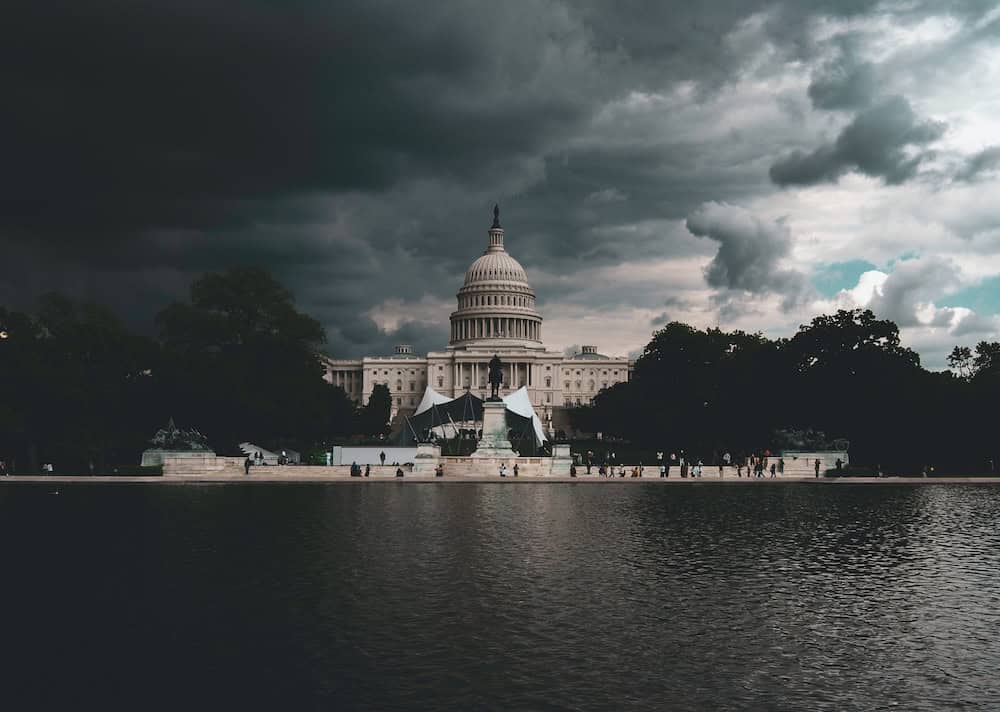Legislation proposed by Republicans on so-called “foreign interference” in US colleges, especially from China, could have a “chilling effect” on the two countries’ global engagement, stakeholders said.
Representative John James recently introduced the Disclose GIFTS Act on the house floor proposing stricter disclosure requirements on higher education institutions receiving gifts or “entering into contracts with foreign entities”.
“For too long, foreign adversaries like the Chinese Communist Party have infiltrated academia to spy on the United States, steal our information, and gain a foothold in our government,” James said. “The national security implications should alarm all Americans.”
The bill in question has since been folded into the later introduced DETERRENT Act (Defending Education Transparency and Ending Rogue Regimes Engaging in Nefarious Transactions), co-led by chair of the Education and Workforce Committee Virginia Foxx and representative Michelle Steel.
“The legislation follows Committee oversight efforts uncovering the Department of Education’s failure to open a single investigation under Section 117 of the Higher Education Act – the single biggest enforcement tool to protect against the threats posed by foreign adversaries,” the announcement of the bill read.
“Section 117’s loose legislative language, Biden’s blatant crippling of enforcement efforts, and institutions’ refusal to adhere to the law have resulted in billions of dollars in foreign funds infiltrating our country undetected.”
The proposed move could negatively impact how US universities engage with China, according to AIRC’s executive director Brian Whalen.
“While AIRC recognises the need for transparency and accountability, we are concerned that the proposed legislation will have a chilling effect on institutions’ global engagement with China, at a time when we need more educational and cultural exchange with China and the rest of the world,” he told The PIE News.
Brad Farnsworth, principal at global engagement firm Fox Hollow Advisory, which works with universities, said that critics often say institutions receiving funding from China “will be reluctant to take actions that might offend the Chinese government”.
“I am not aware of any evidence of direct interference,” he said, adding that institutions should be “clear and transparent about the nature of their China partnerships”.
This includes publicly sharing information on funding, personnel, and activities.
“They should also be clear on how their own institutions, and their key stakeholders, benefit from these partnerships, whether it is increased research output, increased revenue, or increased student learning,” he said.
“They can also address the concern about interference by ensuring that the content of China programming is balanced and fair, which means including the good with the bad,” Farnsworth noted.
AIRC’s president, Derrick Alex, warned that international students, including the Chinese nationals who make up a significant portion of the US’ international student population, contribute too much for their credibility to be undermined by bills like those on the table.
“For every three international students, one US job is created and supported by spending occurring in the higher education, accommodation, dining, retail, transportation, telecommunications and health insurance sectors.”
“I am not aware of any evidence of direct interference”
“Putting in place what may be onerous compliance requirements may have the unintended consequences of undermining this important contributor to the US economy,” Alex told The PIE.
The Trump administration launched 12 investigations into different higher education institutions on the matter, according to former secretary of education Betsy DeVos, who at the time “insisted” that very few schools were complying with Section 117.
In May this year, the Department of Education said it would be making “only limited changes” to reporting requirements, and would not conduct a “formal rulemaking process” on Section 117.
“[The department] plans to shift the primary responsibility for administering Section 117 from the Office of the General Counsel to Federal Student Aid, where it was before the Trump administration,” the Department of Education said at the time.
The lawmakers putting forward the DETERRENT Act insist that the bill will demand more accountability – much like the language from James’ announcement of the original DISCLOSE Gifts Act.
“We are bringing bad actors directly into blinding sunlight”
“By erecting this bulwark, we are bringing bad actors directly into blinding sunlight while holding colleges and universities accountable. Covert attempts to influence postsecondary education in America will no longer be obscured by the shadows,” Foxx and Steel said.
Whalen urged institutions to talk to their representatives on the matter in light of such rhetoric.
“[They should] express the value that international students bring to the US and caution against legislation that could negatively impact international student enrolments.
“At the same time, institutions can reassure their Chinese recruitment agency partners, prospective and currently enrolled students, that the US government, our professional international education associations, and most citizens recognise and value the contributions that international students make to our culture and society,” Whalen added.











